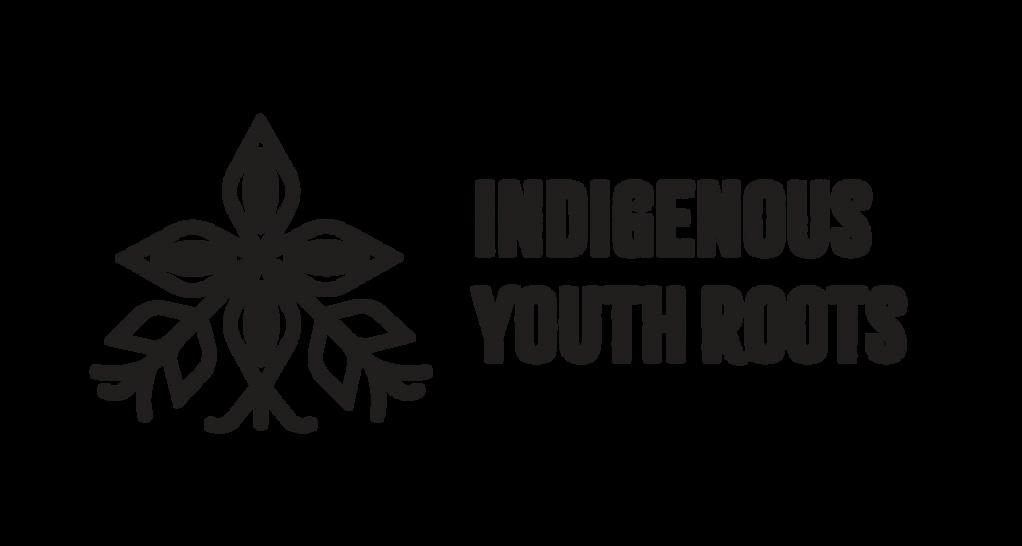








Whether you ’ re interested in poli (the drama, the intrigue!), looking ways to dismantle settler-colon hetero-patriarchy, or just confu about what politicians ACTUALLY all day, The Rundown is here for yo With each season, IYR’s Centre Indigenous Policy and Research bring you a new edition of T Rundown recapping everything y need to know about what’s going on Canadian policy when it comes Indigenous rights, community, a reconciliation.














> NATIONAL INDIGENOUS PEOPLES DAY: National Indigenous Peoples Day was celebrated on June 21, honouring the history, culture, and achievements of First Nations, Inuit, and Métis communities. Celebrations were held nationwide to mark the occasion, and various events were organized that brought together Indigenous and non-Indigenous communities. In Calgary, hundreds of people took to the streets to join the annual March for Reconciliation, while in Toronto, a traditional sunrise ceremony was held in recognition of the day. Meanwhile, in Iqaluit, community feasts featuring country food and activities were organized in celebration. Large crowds also gathered with the Métis Nation-Sasketchewan in Humboldt, to show support for the Métis community on the day.
> FIRST NATIONS CHILD AND FAMILY SERVICES SETTLEMENT: On July 11, the Assembly of First Nations (AFN) confirmed that they had secured a 10-year financial commitment from Canada to reform First Nations child and family services. Canada will support these long-term reforms through $47.8 billion in funding over a 10-year period. AFN National Chief Cindy Woodhouse Nepinak revealed this on the final day of the AFN's annual general assembly in Montreal. The commitment stems from a Canadian Human Rights Tribunal ruling in 2016, which includes adjusted funding for remote First Nations communities and focuses on housing to ensure safe homes for families.
“The funding will lead to improved supports for First Nations children and their families through fundamental reforms to the program...We're trying to change our broken system… We are moving towards prevention rather than apprehension.
-AFN National Chief Cindy Woodhouse
Nepinak
”

> MMIWG2S+ CALLS TO JUSTICE: In June, the Assembly of First Nations (AFN) published a new progress report evaluating the advances made in implementing the National Inquiry’s 231 Calls for Justice. They found that only two of the 231 Calls to Justice have been met, with most others showing minimal progress. Advocates, including AFN National Chief Cindy Woodhouse Nepinak, called on governments and their agencies to implement meaningful change rooted in justice and human rights, prioritizing survivors and their families.

TheAFN’sreporthighlightedthe urgentneedforincreasedresourcesto fullyimplementallCallstoJustice,as only2/231havebeenmetsofar.You canreadthefullprogressreporthere.



TheAFNconductedafive-year independentreviewtoassessprogress withimplementingthe231Callsto JusticeissuedbytheNationalInquiry intoMMIWG2S+in2019.
On June 14, Deloitte published the fourth volum of Voice of Indigenous Youth Leaders on Reconciliation in partnership with Indigenous Youth Roots. The new report highlighted the importance of Indigenous-led climate action and policy to combat the impacts of climate change and environmental racism. Indigenous youth stressed the need for their inclusion in environmental decision-making. The report calle for the meaningful participation of Indigenous leaders in land management, emphasizing the importance of weaving Indigenous traditional knowledges with Western approaches to comba the impacts of climate change.


> WHAT JUSTICE LOOKS LIKE: A recent report published in partnership between the First Peoples Wellness Circle, the Thunderbird Partnership Foundation, and the Firelight Group highlights the ongoing issue of anti-Indigenous racism in Canada's healthcare system, particularly in mental health and addictions services. Discussions and surveys were conducted with Indigenous participants across the country to gain insight into potential ways of addressing these issues. The report stresses that changes must be made in collaboration with First Nations, Inuit, and Métis communities to respect their authority and responsibility in shaping care structures and policies.

> GRASSY NARROWS: In June, Asubpeeschoseewagong Netum Anishinabek
First Nation (also known as Grassy Narrows) announced they would be filing lawsuits against the Ontario provincial government and federal government due to ongoing mercury contamination in the river system that flows through their lands. In the lawsuit, Grassy Narrows argues that the federal and provincial governments have violated their obligations to the First Nations community by failing to ensure that they could safely practice their right to fish. The effects of the contamination have been devastating for multiple generations at Grassy Narrows, both physically and psychologically.
One recent study has estimated that at least 90% of the population has some degree of mercury poisoning. On September 18, thousands rallied at Queens Park in Toronto in support of the community, demanding compensation for community members, the ending of threats to their lands, and remediation of the contamination.
On July 10, Grassy Narrows appealed to the Inter-American Commission on Human Rights (IACHR) to seek international support and pressure for more decisive action after decades of inadequate responses from Canadian provincial and federal authorities.
“This case will be a test of Ontario's and Canada's commitment to truth, reconciliation and justice following one of Canada's worst environmental and human rights catastrophes.
-Chief Rudy Turtle


”
> TSI TEHSAKOTITSÉN:THA KATERI MEMORIAL HOSPITAL: This year, for National Indigenous Heritage Month, CBC Indigenous highlighted Tsi Tehsakotitsén:tha Kateri Memorial Hospital Centre, the first Indigenous-run health centre of its kind. The hospital opened in 1986, following an agreement signed with the Quebec government that gave Kahnawà:ke control of its health care. Since then, the hospital has served as a cornerstone of the community, providing culturally sensitive care services tailored to the needs of its members. Former Medical Director Dr. Ann C. Macaulay said that self-governance was crucial to the hospital’s success, allowing the centre to grow slowly and steadily from within. In recent years, Kateri Hospital Centre has expanded, undergoing major renovations to meet its growing population's needs.
“
” The significance of the hospital is to be able to get your care within your community and for community members to be taken care of by community members as much as we can possibly do that.
-Grand Chief Kahsennahawe Sky-Deer






FIRST
In August, the First People’s Wellness Circle (FPWC) announced the release of their annual report. The theme of this year ’ s report is “Building Sustainable Wellness for the Mental Wellness Workforce and Communities.” It highlights FPWC's work to support the mental wellness workforce across First Nations, Métis, and Inuit communities. Key highlights of the report include a three-pronged Workforce Wellness Strategy, investment into the IRS Resolution Health Support Program, national collaborations on Indigenous mental wellness, and highlights of their advocacy work for policy change.



> MÉTIS NATION – SASKATCHEWAN DUMONT LODGE: On July 3, the Métis Nation –Saskatchewan (MN-S) proudly announced the opening of Dumont Lodge on the sacred grounds of Batoche. The $8 million, 18,000-square-foot facility was constructed from start to finish by Métis tradespeople and subcontractors and serves as a tribute to Métis ancestors and a learning ground for youth. Spearheaded by Elder Albert LeClair, Dumont Lodge provides a space where Elders can share traditions, culture, values, and language with the younger generation, fostering a sense of pride and continuity.
““By reconnecting Métis children and youth, they have a sense of pride in their culture, they can learn from their Elders, and carry on our traditions with their own children. In doing so, we help shape them to become our leaders of tomorrow.”
-Elder Albert LeClair






> COWICHAN TRIBES CHILD WELFARE SERVICES: The Cowichan Tribes, the largest First Nation in British Columbia, have signed a co-ordination agreement to take full responsibility for youth and family services. The transition comes after federal and provincial laws were passed in recent years that allow communities to manage their child welfare systems. The agreement aims to keep children with their families and embed community values and teachings into child welfare practices. As part of the co-ordination agreement, the federal government will provide the nation $207.5 million, and the provincial government will provide $22 million over four years to assist with setting up the Cowichan Tribes child and family services authority.
“By embedding our teachings, family customs and values into our law, we are setting new requirements for how decisions are made — to prioritize keeping our children with their families.”
-Chief Cindy Daniels


>MAYO, YUKON’S FIRST PRIDE PARADE: The village of Mayo, Yukon, hosted its first Pride parade, driven by the initiative of student Ava Young in honour of her late aunt Natasha. Over 50 residents gathered to celebrate the Two-Spirit and LGBTQQIA+ community. Natasha Young, a Na-Cho Nyak Dun citizen and proud member of the Two-Spirit and LGBTQQIA+ community, passed away last year. The parade saw participants proudly uniting in a show of support and acceptance, with organizers hoping to make this celebration an annual tradition.
>THUNDER BAY TWO-SPIRIT POWWOW: In June, the Thunder Bay Indigenous Friendship Centre held its annual Two-Spirit Pride powwow, celebrating Indigenous queerness. The powwow featured a Two Spirit-focused drum group called Niizh Manitoowag Makwa Giizis (or Two-Spirit Bear Moon Drum in Anishinaabemowin). Dayna Danger, the host drummer of the group, emphasized the importance of creating inclusive spaces that encouraged other TwoSpirited youth to also engage in drumming.
“
” "When we have the two-spirit drum here, anybody, regardless of gender identity or gender expression, are allowed to sit at that drum and experience those teachings and that learning opportunity sitting at the big drum,"
-Logan McIvor, Event Organizer



>COWESSESS FIRST NATION CELEBRATES PRIDE MONTH: In June, Cowessess First Nation held their annual Pride Month BBQ, celebrating the Two-Spirit and LGBTQIIA+ community. This year, Cowessess Nation marked the occasion with inspiration from the Cree language term, “kahkiyaw kikihtêyihyâkosinaw,” translating to “we are all sacred.” Shayla Wing, a TwoSpirit and LGBTQIIA+ Advocate and member of Cowessess First Nation, emphasized the importance of creating safe spaces and a sense of belonging for Two-Spirit and queer individuals in their community.
>ALEKSI “ANN” ANSETH QUEER, MÉTIS ARTIST: Saskatchewan-based artist Aleksi "Ann" Anseth has been celebrating her queer Métis identity through a series of mixed media landscapes titled “Prairie Pride Panoramas.” Combining traditional painting with Métis beadwork, Anseth said her art reflects her journey of self-discovery and pride. Her work traces locations in Saskatchewan, like North Battleford and Prince Albert, and tie into her personal history, tracing her Métis roots back to Batoche. In June, she announced she would be starting a Pride mural in North Battleford, Saskatchewan and invited the public to contribute to the collaborative artistic celebration of identity and community.
“
“I spent a lot of my youth waiting for permission to express myself and be who I am. And I just want people to know they don’t need anyone’s permission to be who they are and be proud of who they are,”
-Aleksi “Ann” Anseth
”


> PARLIAMENT ADJOURNED & RECONVENED: In June, Parliament announced that they had adjourned for the summer. They have sense reconvened as of September 16. Before adjourning, MPs expedited several measures, including passing Bill C-226, the National Strategy Respecting Environmental Racism and Environmental Justice Act, as well as another 10 government bills. Now that Parliament has resumed, pending bills like Bill C-40, the Miscarriage of Justice Act and Bill C-64, the Pharmacare Act, can be examined again.
> NDP-LIBERAL SUPPLY AND CONFIDENCE DEAL ENDS: On September 4, NDP Leader Jagmeet Singh announced that his party was cutting ties with the Liberal government. The NDP and the Liberals have had a supply and confidence agreement since March 2022 that helped keep the minority Liberal government in power. Singh said that the deal would end because the Liberal Party let down Canadians by siding with corporate interests and not supporting workers enough. Moving forward, the NDP will decide how to vote on Liberal policies independently, and the Liberal government could be tested by future votes and elections.
The agreement was a promise made by the NDP that they would support the minority Liberal government in key votes, like passing the budget, to help them stay in power. In return, the Liberals agreed to work on things that the NDP prioritizes like dental care and affordable housing.





> SENATE RESIDENTIAL SCHOOL RECORDS REPORT: A recent Senate report revealed that despite legal obligations, Indigenous peoples in Canada still face significant barriers in accessing historical records about residential schools. The report, Missing Records, Missing Children, highlights reoccurring issues like scattered records, delays in access, and restrictions under federal and provincial laws. The committee recommends government support for Indigenous-led efforts to locate and retrieve missing records, emphasizing the need for Indigenous ownership, control, and access.
> BILL C-61, FIRST NATIONS CLEAN WATER ACT: As of June 17, Bill C-61 is under consideration b th St di C itt I di d N th Aff i Bill C 61 h faced criticism Meneen of the of Manitoba C undue burden underfunding

Bill C-61 (or the First Nations Clean Water Act), introduced in late 2023, seeks to affirm First Nations' inherent rights to self-governance over water resources (i.e., drinking water, source water, wastewater, and related infrastructure) on First Nations lands. The bill also sets minimum standards for water quality and quantity on First Nations lands. The bill is currently in its second reading in the House of Commons, with multiple steps left before it can become law.


> Bill C-226 RECEIVES ROYAL ASSENT: Bill C-226, the National Strategy Respecting Environmental Racism and Environmental Justice Act, mandates the development of a national strategy to assess, prevent, and address environmental racism while advancing environmental justice in Canada. The bill received royal assent on June 20, nearly four years after similar legislation was introduced in Parliament. The legislation aims to address the disproportionate environmental impacts experienced by affected communities, and shape policies that affect their environments.

Indigenous Climate Action published a newsletter in which they criticized the passing of Bill C-226, calling it a performative colonial policy that ignores longstanding calls to action and fails to incorporate Indigenous ecological knowledge and governance systems. You can read the full piece here!





> ‘BAD CREE’ BY JESSICA JONES is a haunting debut horror novel about a young Cree woman’s journey of self-discovery that ultimately forces her to confront the toll of a legacy of violence on her family, her community, and the land they call home.
> ‘BECOMING A MATRIARCH’ BY HELEN KNOTT is a beautifully written memoir that explores grief, love, and legacy. The book is a follow-up to Knott’s bestselling first novel ‘In My Moccasins,’ and follows Knott as she navigates the overwhelming loss of her mother and grandmother within six months of each other.
> ‘COEXISTENCE’ BY BILLY RAY BELCOURT is a collection of intersecting short stories on Indigenous love, loneliness and the queer experience. The book features varied stories that all explore the theme of our desire for connection.
> ‘INTO THE BRIGHT OPEN’ BY CHERIE DIMALINE is a queer young-adult reimagining of ‘The Secret Garden’ from the author of the highly acclaimed book ‘The Marrow Thieves.’



> TIA WOOD is an emerging R&B artist from Saddle Lake Cree Nation, Alberta. On her website, she explains that she carries the spirit of her people’s songs that have echoed from her homelands since time immemorial, and the musical roots of her family tree run deep.
> ACTORS AND ANCESTORS is an Indigenous film and television podcast hosted by Cree actor Joel D. Montgrand. Each episode celebrates Indigenous actors, challenges Hollywood stereotypes, and looks to the future of Indigenous Peoples on screens.
> PIHTIKWE is a podcast series by the First Peoples Wellness Circle. It features Indigenous psychologists and leaders in the mental wellness field to promote collective learning and mobilize knowledge to support Indigenous well-being.








